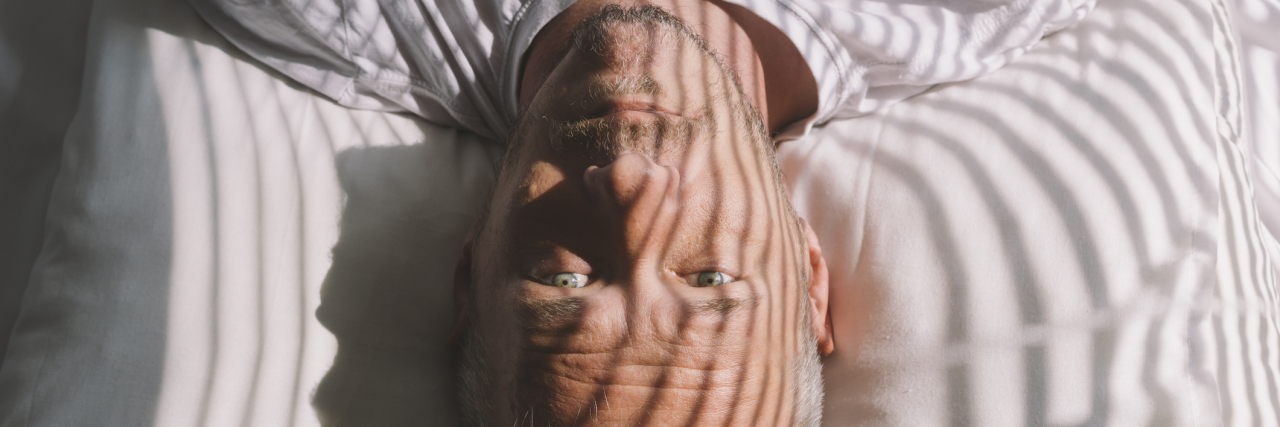Since sleep issues and sleep apnea are often significant contributing factors in depression and anxiety, it’s important that this is considered if you live with these conditions. It’s difficult (at best) to overcome these issues in your life if you feel tired almost all of the time, as I do.
Diagnosing sleep issues is difficult at best with anxiety, however. Imagine you’re already anxious — now to have a sleep study done, imagine you have to go to a strange sleep lab at night, getting lost at least once on the way. When you get there, you’re led into a strange bedroom with super bright lighting, wired with sensors from your head to your lower legs, with sensor straps around your chest and stomach. Then, you’re expected to sleep in a strange bed with a camera watching you with its flashing light on the wall, while another blue light is shining in your face. This was my experience that left me in tears. I’m not certain if I slept at all that night; when it was over, I didn’t leave home for the rest of the weekend.
I don’t know how anyone should expect any sleep in circumstances such as these! And I don’t know why sleep labs should expect anyone will sleep at all under
conditions such as these. I wish my experience was a unique one, but it isn’t — everyone I shared my awful experience with reported much of the same in their own sleep studies. It just reinforces my own saying that, “Hospitals are no place to get any sleep.”
Clearly, changes are needed. Physicians who order sleep studies, along with sleep labs must address any patient anxiety issues well in advance of any sleep study being done; anti-anxiety medication may be needed. Issues with lighting and noise must be addressed as well. Get rid of any blue/daylight spectrum lighting — adopt warmer tone lighting that isn’t so bright instead. Asking what type of bed you sleep in at home is important too; sleeping on a flat type bed is difficult if
you sleep on an adjustable bed at home, as I do. If these issues aren’t addressed for your sleep study, you may be better off with a sleep study at home, where you have a better chance of a successful sleep study that will give you the answers you need. Accept nothing less.
Even if you have a successful sleep study that gives you the answers that you need, your patience will be tried further still. This is thanks to the shortage of continuous positive airway pressure (CPAP) machines in the US right now. It may be one to two months (or more!) for a CPAP and the relief it can give to be delivered to you. Until then, you’ll need to stretch your patience further than ever before. Remember if you need patience, you’ll have to wait for it. I wish you the best of luck until then.
Getty image by Marccophoto

